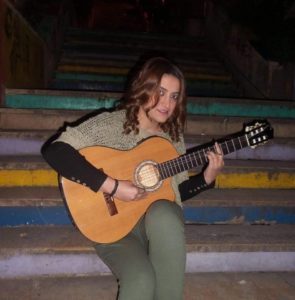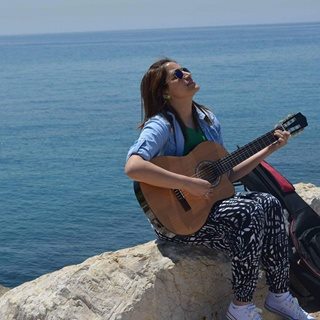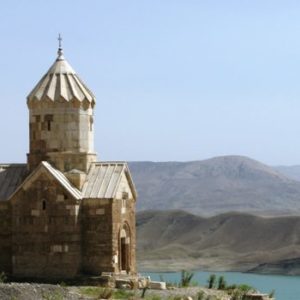Fairuz AbdelKareem known as Fairuz Kokall, a guitar aficionado talked to our Art and Culture contributor, Christiane Waked about the journey that led her to become a flamenco musician in Lebanon.
C.W: Your real name is Payruza but chose to be called Fairuz as a tribute to the famous Lebanese singer. Can you please tell us a bit about your background?
F.K: Of course Christiane. My family is Kurdish originally from Turkey but we are naturalized Syrians. We arrived to Lebanon 15 years ago, not only to escape harsh conditions but also because my family and I felt very connected to the Lebanese culture and art of living.
Though, I need to emphasize that we never renounced our Kurdish roots and traditions and we are very keen on showing this as part of our identity.
I was born in Rojava and my dream is to go back there and play music to entertain families and children who have witnessed the most horrific war with ISIS.
To my people and to the rest of the world, I’d like to spread a message that music is a healer and it’s free for all and is not limited by any sectarian or political ideas.

C.W: When did you start playing guitar and was flamenco music the main reason that drove you to play this instrument?
F.K: When we arrived to Lebanon and due to economic reasons, I was not able to buy a guitar until 5 years ago.
I remember that magic moment when I touched the guitar for the first time and started to scratch the chords. At the beginning, I was just making noise (giggles). Later on, I knew that I had to learn the techniques so I worked several jobs in order to afford guitar lessons and started a couple of years ago to learn with the maestro Michel Jreidini. I directly asked him to teach me flamenco as I am a big fan of this music that moves me to the core.
C.W: When was your first concert and what do you remember the most about it?
F.K: My first concert was organized by my teacher who gathered all his students in a small theatre where we played in the presence of music teachers, friends and families.
I was very nervous to play in front of a crowd but once it was done I felt happy and proud. Now I play in all the Kurdish Folkloric Festivals as you witnessed during the concert that was organized by the Kurdish Student Union in Lebanon in Naher Ibrahim not long time ago.
C.W: While playing flamenco do you feel like combining it with some Kurdish music?
F.K: I always try to add some of the Kurdish music spices in the flamenco (giggles) and I have a project to compose a Spanish Kurdish melody that captures the essence of both identities. I emphasize on the word identity because music is the reflection of one’s traditions and history.
The Kurdish music is a mixture of many styles, classical, folkloric or even nostalgic. Every Kurdish family has a member who plays either the buzuk or the tembur or any Kurdish instrument.
Unfortunately, nowadays the music industry has lost all its values and is commercial and tasteless.
I am proud to say that I am a self-made person. Although, I have no one to finance my music but I have the freedom to compose and play whatever I want with no restrictions.
C.W: Who are the Arab singers or musicians that inspire you the most?
F.K: No need to say Fairuz (laughs) because it is obvious but I like to add Oumeima El Khalil whose voice is very distinct.
From the new generation, Shirine is the singer who inspires me the most because like me she came from a very poor background but was able to build a musical identity that is her own without the help of anyone.
I like to follow her path because while it is very easy to be influenced by others these days, Shirine is unique and does not resemble anyone.
C.W: Any last words to the Arab Youth?
F.K: Music is the most effective instrument to reconcile people and countries. Believe in it and the world will start to heal.
Christiane Waked is a former Press Attaché of the French Embassy to the UAE (2010-2015) also worked as linguist and analyst in the French Interior Ministry (2005-2008)







